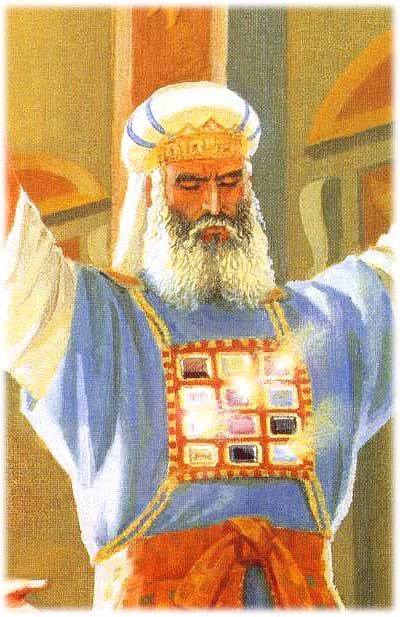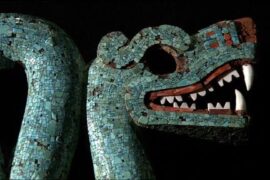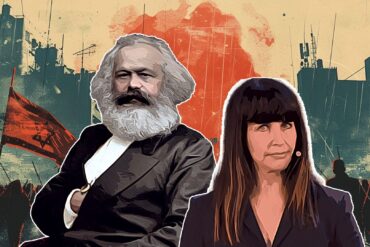Tetzave spotlights the selection, vestments and inauguration of Aharon and his sons as Israel’s kohanim (priests). The extra responsibilities taken on by Aharon’s progeny involve conducting the everyday tasks pertaining to the Temple and serving as spiritual leaders to the broader Hebrew nation.
In addition to creating the conditions for their people to experience the Divine, the Kohanim have often distinguished themselves within Israel for both a fierce commitment to the collective Hebrew mission and a passionate zeal on behalf of Torah, the pinnacle of which has frequently been the readiness to forfeit their lives for the sake of HaShem’s Ideal – an exalted level of sacrifice placing one’s love for the Kadosh Barukh Hu above all else.
Upon a surface reading of the text, however, Aharon appears to have lacked this readiness for ultimate sacrifice.
When confronted with the option of either being killed by his own people or helping to construct the Golden Calf, he opted for participation in building the idol. Although Aharon might have been justified in his decision (based on a concern for how Israel’s future would be impacted by the national stain of having killed their High Priest), he did not display an absolute willingness to die rather than compromise HaShem’s Truth.
Although Aharon was undeniably righteous and had already been Divinely selected to become Israel’s Kohen Gadol, he required the rectification of the miluim process in order to return him and his family to their previous state of kedusha.
While the transgression of the Golden Calf had caused Aharon to feel a sense of distance from HaShem, the miluim was intended to bring him close again through spiritual perfection. The priestly vestments play a central role in this process and great detail is offered in describing them. When the description is finished, the Torah instructs:
“With them you shall dress Aharon your brother and his sons with him; You shall anoint them, and you shall fill their hand, and you shall sanctify them, and they shall be kohanim to Me.” (Sh’mot 28:41)
Sforno comments on this verse that “You shall anoint them” means to spiritually complete them so that they (the kohanim) will be worthy of their role. Trust in HaShem is a prerequisite to sincere and passionate Divine service. Perfect emuna – absolute certainty beyond the limitations of rational thought – involves living His Torah without fearful considerations, as only good can ultimately result from righteous conduct. This level of complete emuna empowers one with the ability to fully live his own values, as well as the readiness to offer his life, as the Sh’ma Yisrael affirmation dictates:
“Love HaShem your G-D with all your heart, all your soul and all that you have.”
Our Sages teach on this: “Even if G-D takes your life.” (Brakhot 54a)
Mesirut nefesh (self-sacrifice) is the ultimate manifestation of trust in HaShem. Israel was born out of a readiness for sacrifice. Through his willingness to sanctify G-D’s Name at the expense of his own life in Ur Kasdim, Avraham displayed the qualities that made him worthy of becoming father of the Hebrew nation.
When thrown into the furnace by the tyrant Nimrod, Avraham had no guarantee of salvation. He was simply willing to give his life for what he knew to be true. He was rewarded not only with miraculously surviving the flames, but also with becoming the patriarch of the nation uniquely created to express HaShem’s Ideal in every facet of human existence.
Our Sages teach that as a result of his willingness to sacrifice his life for HaShem’s Truth, Avraham merited things in this world which the righteous do not normally merit until the World-to-Come.
“Why did Avraham merit life without pain and without temptation here on earth, what HaShem shall ultimately give to the righteous in the World-to-Come? It is because he sacrificed his life for the glory of heaven in Ur Kasdim. Whoever sacrifices himself in this way is awarded life in this world and long, plentiful, infinite life in the World-to-Come… With Nimrod and the entire generation of the dispersion seated there, Avraham entered and was placed at the center. He descended and said his piece. Nimrod asked him, ‘If not [idols], then whom shall I worship?’ and Avraham replied, ‘The Supreme Master, Whose Kingdom exists in heaven and earth, and in the loftiest heavens.’ Nimrod answered, ‘I shall serve the god of fire, and I shall throw you in. Let the G-D of whom you speak save you from the fiery furnace!’ They immediately bound him and placed him on the ground… G-D’s mercy instantly welled up and He descended from the highest heavens, from the place of His glory, greatness and majesty, of His holy Name, and saved Avraham from that shame and mortification and from that fiery furnace, as it says, ‘I am the G-D Who took you out.’ (B’reishit 15:7)” (Eliyahu Rabbah 5)
The nation of Israel is currently experiencing a “miluim” process that will ultimately empower us with a complete emuna.
Through the difficult questions triggered by the challenges confronting our people, Israel is breaking free from our psychological limitations and ascending the heights of collective responsibility and self-sacrifice. Only through a perfect trust in in the Kadosh Barukh Hu and an iron determination to advance the Hebrew mission can we reach the passion and fortitude necessary to overcome the obstacles currently blocking our path and begin to finally shine our light to the world from Jerusalem.





